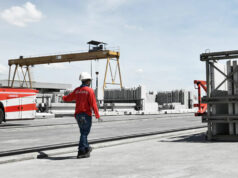THE European Chamber of Commerce of the Philippines (ECCP) urged government to implement the reduction of the corporate income tax (CIT) earlier than the proposed 10-year schedule.
“We are supporting this but our recommendation would be to accelerate the implementation of the corporate income tax (reduction) in order to boost the economy,” ECCP President Nabil Francis said during a briefing in Taguig City on Wednesday.
The House of Representatives last September approved on final reading House Bill 8083, or the Tax Reform for Attracting Better and High-quality Opportunities (TRABAHO). The bill seeks to cut the corporate income tax rate gradually to 20% by 2029 via a two-percentage-point reduction every other year starting 2021. The current corporate income tax rate is 30%.
Meanwhile, deliberations on the Senate version, which cuts the CIT rate in the first year of implementation but only to 25%, stalled pending lawmakers’ request for an official government data on job losses resulting from the planned incentive changes.
Referring to the House version, Mr. Francis said the ten-year wait is “too long,” as the Philippines competes with neighboring countries who are also moving to make their business environment more attractive to foreign investors.
Although Mr. Francis declined to provide his preferred timetable, he said “the shorter [the wait] the better.”
Mr. Francis noted the Philippines and other members of the Association of Southeast Asian Nations (ASEAN) should take advantage of the on-going trade dispute between China and the United States. Some China-based companies are looking to relocate in Southeast Asia to avoid the higher US tariffs on their products.
“We know from our colleagues that [EU businesses] are looking into Vietnam, into Cambodia. The question is how can we become more attractive and make them invest in the Philippines,” ECCP Executive Director Florian Gottein said during the press conference.
Asked if any EU-based business has scaled down its Philippine operations due to the TRABAHO Bill, Mr. Gottein said: “As of now, we are not aware of a company that closed operations but some of them are putting their investments on hold, while some are looking at relocating their investments.”
The ECCP noted 2019 presents “encouraging” prospects in the Philippines.
“In a nutshell, our vision is that in 2019, all the ingredients to get a successful year, cautious optimism should prevail. There are good reasons to continue to cultivate good relationship between the EU and the Philippines,” Mr. Francis added.
Inflow of FDIs from the EU plunged 82.32% to $286.50 million in the January to October period last year from the $1.62 billion registered in the comparable period in 2017.
Nevertheless, overall FDIs during the period totaled $8.53 billion, close to government’s target of $10.4 billion.
The Joint Foreign Chamber is optimistic that FDIs this year will continue to breach the $10 billion level as it has been doing since 2017. — Janina C. Lim



